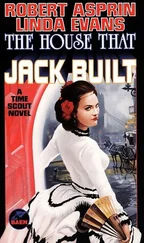Robert Baer - Blow the house down
Здесь есть возможность читать онлайн «Robert Baer - Blow the house down» весь текст электронной книги совершенно бесплатно (целиком полную версию без сокращений). В некоторых случаях можно слушать аудио, скачать через торрент в формате fb2 и присутствует краткое содержание. Жанр: Триллер, на английском языке. Описание произведения, (предисловие) а так же отзывы посетителей доступны на портале библиотеки ЛибКат.
- Название:Blow the house down
- Автор:
- Жанр:
- Год:неизвестен
- ISBN:нет данных
- Рейтинг книги:4 / 5. Голосов: 1
-
Избранное:Добавить в избранное
- Отзывы:
-
Ваша оценка:
- 80
- 1
- 2
- 3
- 4
- 5
Blow the house down: краткое содержание, описание и аннотация
Предлагаем к чтению аннотацию, описание, краткое содержание или предисловие (зависит от того, что написал сам автор книги «Blow the house down»). Если вы не нашли необходимую информацию о книге — напишите в комментариях, мы постараемся отыскать её.
Blow the house down — читать онлайн бесплатно полную книгу (весь текст) целиком
Ниже представлен текст книги, разбитый по страницам. Система сохранения места последней прочитанной страницы, позволяет с удобством читать онлайн бесплатно книгу «Blow the house down», без необходимости каждый раз заново искать на чём Вы остановились. Поставьте закладку, и сможете в любой момент перейти на страницу, на которой закончили чтение.
Интервал:
Закладка:
We immediately checked all the visa and immigration records, but there was no indication that Mousavi had ever applied for or received a visa, either in Beirut or Tehran. I got a friend in the FBI's Los Angeles field office to run out to UCLA. He came up empty on the name, but an FBI informant did remember a French-educated Iranian studying there in the early seventies. He had been writing a dissertation on a subset of non-Riemannian hypersquares, whatever that is, until he dropped out of the program, short of a Ph.D.
When the registrar pulled up the records for my FBI pal, the Iranian student's name was missing-digitally stripped out. The paper application, along with a photo, was gone, too. The registrar had never seen anything like it before. The only useful lead came from a professor in the mathematics department: He recalled a brilliant Iranian graduate student who had "sort of rusty hair." But since the student was a loner and never showed up for lectures, he couldn't tell us much more.
I had been transferred out of Beirut when in late 1991 Bill Buckley's headless, decomposed body was found dumped like a dead dog in Beirut's southern suburbs.
Confirmation that Bill was dead didn't diminish my interest in finding his kidnapper-if anything, it heightened it. But I wasn't in a position to do much about it until my many sins finally caught up with me, and I was yanked out of the field in January 2000 and brought back early to Langley to die a slow bureaucratic death. I was sure the trail had gone cold by then, but I started going through the databases anyhow, and eventually I found a reference to a photo of an "Ali Mousavi," taken in Peshawar, Pakistan, archived to an inactive informant's file. It was a long shot, but I ordered the file from Archives.
It turned out to be harder than it should have been. Archives said they couldn't find the file, so I took the day off to look myself. I never did find it, but I finally turned up the photo: a posed shot of five people standing in a garden. Behind them was a cinder-block house with a couple of half-dead bushes and a barbecue pit. In the middle was Osama bin Laden, clutching what looked like a Koran in his hand. To the left of bin Laden was someone in a salwar chemise. Something about him, his hands maybe, suggested that he was Caucasian, a Westerner, but his head had been carefully scissored out. To bin Laden's right stood a young man in a galabiyah. He couldn't have been more than sixteen or seventeen. On the far right another young Arab wore a kafiyah and held up an AK-47, partly covering his face.
What really got my attention was the person on the far left of the photo: a slight man, maybe five-six, dressed in a rumpled polo shirt and jeans. He looked aloof, as if he were uncomfortable being there or having his photo taken. He was also the only one whose features were too defined to be Arab. Since the photo wasn't in color and the resolution was lousy, I couldn't be sure, but his hair was something other than jet-black. The absence of any caption didn't help either, but I had a hunch I'd never been closer to the Murtaza Ali Mousavi I had been following for fifteen years.
What I couldn't understand, if this was Mousavi, was what he would be doing with Osama bin Laden? If there was any constant in the Middle East, it was that Shia Muslims like Mousavi detested Sunni Muslims, especially uncompromising Sunnis like bin Laden, who considered all Shia heretics best put to the scimitar.
The headless somebody was also an anomaly. For a start, the salwar chemise was caved in, the way clothes are on very old or very sick people. That his head was missing wasn't all that unusual. Faces and other identifiers of CIA officers get cropped out of photos sent in from the field, even when they're marked Secret. But the chances of this guy being CIA were close to zero. None of our officers was ever in touch with bin Laden, in spite of the silly myth that he was the CIA's creation. So who was the headless horseman? And who were the other two young Arabs? The picture was intriguing, but it was getting me nowhere.
I needed someone to identify the players. If the dating on the photo was right, John Millis was in Peshawar when it was taken. John had since gone on to become chief of staff at the House Intelligence Committee. I gave him a call.
We met at the Tune Inn, a dive on Pennsylvania Avenue a few blocks from the Capitol-me in a pair of faded khakis and a tattered, wrinkled blue oxford shirt and Millis in his Joseph A. Bank, all-season, light wool suit. We were as mismatched as you get in Washington.
After the waitress brought us our burgers and coffees, Millis pulled the photo out of the manila envelope and took a close look at it.
"I used to walk by that house," he said with a smile. "That's where bin Laden lived. I'd see him out front from time to time-had the impression he was friendly. Where'd you get this picture?"
"I thought you'd tell me. It was sent in from Peshawar when you were chief."
"I don't remember it."
"See anyone else you recognize there?"
"I don't know. Looks like the normal crazies who washed up in Peshawar in those days."
Millis pulled a pair of fold-up reading glasses out of a sleek metal case, fitted them carefully to his ears, and took a closer look. When he was through, he held the photo to one side so I could see and began pointing, starting with the guy to the right of bin Laden.
"This one was a Gulf prince, a true believer who took up digs with bin Laden. He couldn't have been more than twenty. And this…" He stopped, held the photo closer, then held it out again so I could see. "This guy on the far right you should know."
"I should?"
I tried to imagine whoever it was without his head wrap, without the AK-47 muzzle blocking half his face, minus the two-week-old stubble.
"A Palestinian," Millis was saying. "He was with bin Laden, and then ended up in Hamas. Nabil something."
I saw it then: Nabil Shahadah. After Afghanistan, he'd gone on to head up the military wing of Hamas. Nabil was the architect of the first suicide bus bombings in Israel, a lord of mayhem.
"And the headless guy? Was he ours?"
"Why would you think that?"
"You know, the head cut out. Why else-"
"Sorry. Like I said, I don't remember the photo."
Millis was losing enthusiasm, all but yawning, itching to leave. The rule is, you never want to lead a source. But I had to get him to focus on the guy in the jeans and polo shirt with the light hair. I picked up the photo again.
"Any of these guys Iranian?" I finally asked, pointing at the man on the far left, the man with the fine features.
He checked his watch, stirred his coffee although it had long ago grown cold.
"How's your kid?" he said. "A girl, right? Sally?"
"Rikki. She's okay when she's in school in England and I can talk with her. She's not okay when she's home on break and her mother takes a hammer to her cell phone every time I call."
Millis seemed not to be listening.
"Think this guy is an Iranian?" I asked again, my finger still under the head of the guy on the far left.
Millis ran his forefinger across the faces and shook his head no. "I don't think so, but that was what, more than ten years ago. Wasn't there a cable or a file that went with the picture saying who's who?"
"There was a reference to a file, but Archives can't find it. They're still looking."
Millis smiled. He knew what the chances were that the file would ever turn up. CIA Archives is the Bermuda Triangle of official records.
Millis slipped the photo back into the envelope, then motioned the waitress to come take her money and started to slide across the banquette.
"Gotta go, Max. Appointments."
"Just look at it one more time."
"Sorry. Maybe another-" His hand hit his coffee spoon as he spoke. The spoon tipped the cup. What was left inside spread itself over the table until I could throw a fistful of napkins down on the mess.
Читать дальшеИнтервал:
Закладка:
Похожие книги на «Blow the house down»
Представляем Вашему вниманию похожие книги на «Blow the house down» списком для выбора. Мы отобрали схожую по названию и смыслу литературу в надежде предоставить читателям больше вариантов отыскать новые, интересные, ещё непрочитанные произведения.
Обсуждение, отзывы о книге «Blow the house down» и просто собственные мнения читателей. Оставьте ваши комментарии, напишите, что Вы думаете о произведении, его смысле или главных героях. Укажите что конкретно понравилось, а что нет, и почему Вы так считаете.












